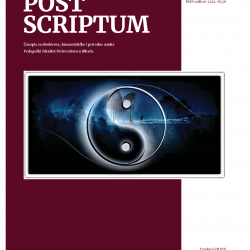Poslijeratna generacija na tragu prošlosti i obiteljskog identiteta u romanima Der letzte große Trost i Flugschnee
The postwar generation on the trace of the past and family identity in the novels Der letzte große Trost and Flugschnee
Author(s): Marijana Jeleč, Anđela MatanovićSubject(s): Fiction, German Literature, Theory of Literature, Politics of History/Memory, Politics and Identity
Published by: Pedagoški fakultet Univerziteta u Bihaću
Keywords: postwar generation; generation novel; memory studies; collective memory; individual memory; identity;
Summary/Abstract: Contemporary literature from the German speaking area opens the door in all directions, monitors all changes in society and the trends of globalization, but equally opens up space for the past. It continues to outline the social and political circumstances before and after World War II that have affected the human microcosm. In the so called ”generation novel” the destiny of the family is inevitably correlated with the historical and social events of the 20th century, so contemporary literature gains the function of collective memory and that is the hypothesis. The basis of the research is to determine the ways and motives of memory, the reasons and the way narrators reconstruct the past and build a family identity. The research is conducted within the theoretical setting of Maurice Halbwachs, Pierre Nora, Aleida Assmann, and the research corpus are two novels of contemporary Austrian literature: Der Letzte große Trost (2016) by Stefan Slupetzky and Flugschnee (2017) by Birgit Müller-Wieland. Determining the features of this popular genre, the way and perspective of family and society representation in it, and the enlightenment of 20th-century political and social events that reflected on the destiny and the literary representation of the family are also part of this research.
Journal: Post Scriptum
- Issue Year: 2020
- Issue No: 8-9
- Page Range: 153-170
- Page Count: 18
- Language: English, Croatian

